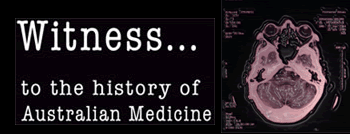


Tobacco Control: Australia's Role
Transcript of Witness Seminar
Introduction
Building the case for tobacco control
Producing, and Responding to, the Evidence
Campaigning for Tobacco Control
Economic Initiatives in Tobacco Control
The Radical Wing of Tobacco Control
Revolutionary Road
Tobacco Industry Strategies and Responses to Them
Campaign Evaluation
Managing Difficulties in Light of Community Consensus
Radical Wing Again
The Process of Political Change
Tobacco Campaigns Up Close
A Speedier Pace of Change
Political Needs and Campaign Strategies
Litigation and its Impacts
Insights from Tobacco Control
Tobacco Control in Australia in International Perspective
Appendix 1: Statement by Anne Jones
Endnotes
Index
Search
Help
Contact us

Tom Roper: You’ve also got to look at what was happening in general not just in tobacco but in cancer. Other programs that the Anti-Cancer Council was running like Slip, Slop, Slap were having huge impacts on families and kids and schools.
It came up in something I was doing quite separately as the Environment Minister. We brought in the first legislation to ban CFCs (chlorinated fluorocarbons) because of their impact on the ozone layer. We did some polling because we had to get it through the Parliament. In fact, from that polling you could see that the consciousness of cancer was very, very substantial.
I got the bill through the Lower House, and it looked like the Liberals would knock it back in the Upper House. So I showed them our polling which showed a high level of concern about the cancer issue and the ozone layer. I said, ‘Look at this. If you don’t support the bill we’ll accuse you of killing children.’
And so we got that legislation through the Parliament, and the NSW government at the time also came in. The thing that got it through and enabled us to persuade the Libs, according to the polling, was all the other strong programs that Nigel and the Cancer Council were doing.
Ron Borland:[66] The first big public health education campaign that made a difference {in Australia} that I’m aware of was around the issue of road safety. It was incredibly successful in Victoria and I think that had an important role in showing people that public health education campaigns could work.
Tom Roper: It is one of the great successes. It started off in 1970 as the ‘Declare war on 1034 campaign’, which reflected the number of people killed in road crashes the previous year.
One of the key features was that it’s been constant. It’s gone for all that time so those who are charged {for speeding or drink driving, for example} find it quite difficult to get off.
Dorothy Reading:[67] John raised the importance of the strength of the idea in campaigns. But it’s quite clear from what Kathy said that what also makes a difference is having some money.
By hypothecating the state tobacco licence fee and putting it in the hands of public health people, you can buy out the tobacco advertising. And similarly with the road safety campaign, money has been hypothecated to road safety campaigns.
Hypothecation is usually a dirty word to Treasuries, but in Victoria the treasurer was Rob Jolly.[68] He was a fitness fanatic and he was extremely supportive of hypothecation, a rare event in itself.
The VicHealth experience did teach us how to manage hypothecation. But in Tasmania they wouldn’t hypothecate the money into public health and nothing happened. The idea was no less strong but there wasn’t the means to actually implement it.
 |
Witness to the History of Australian Medicine |  |
© The University of Melbourne 2005-16
Published by eScholarship Research Centre, using the Web Academic Resource Publisher
http://witness.esrc.unimelb.edu.au/137.html